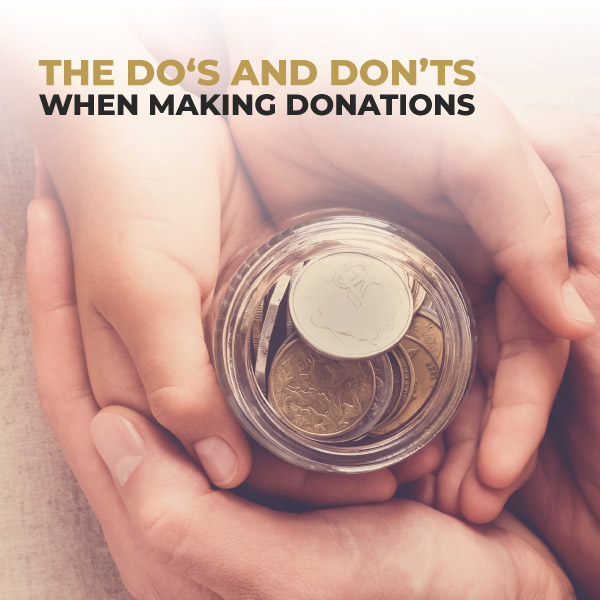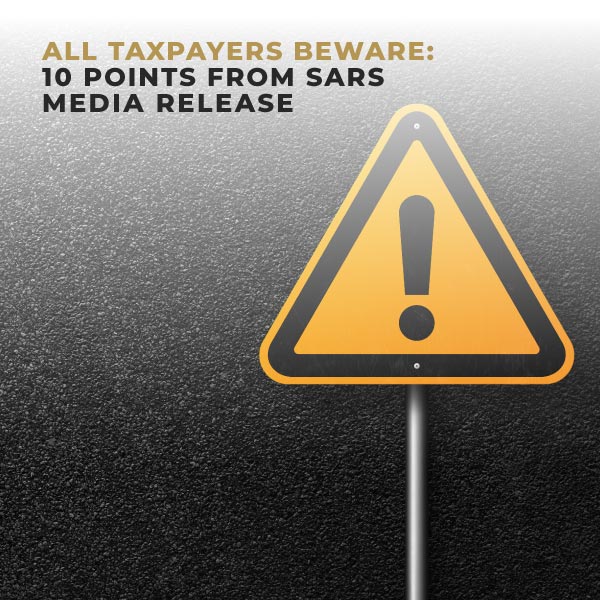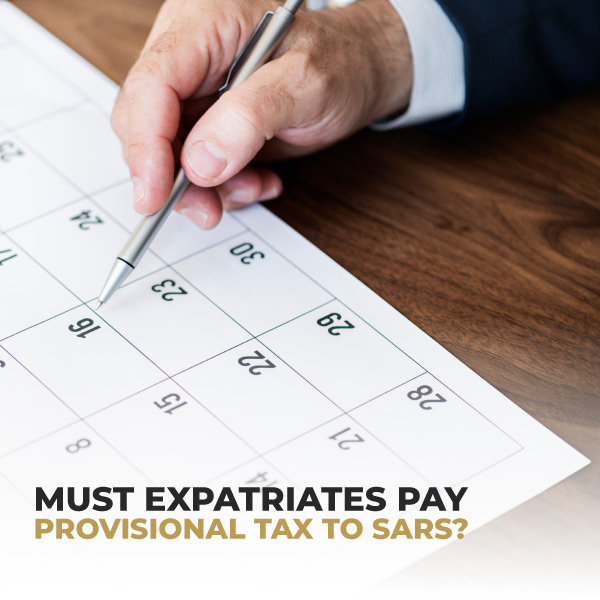THE DO‘S AND DON’TS WHEN MAKING DONATIONS
South Africans are acutely aware of the plight of their fellow citizens during the current Covid-19 pandemic. Many are willing and eager to donate money to assist with the alleviation of poverty, but should at all times remain wary of the promise of tax benefits.
It is of paramount importance that the historical accountability and transparency of recipient companies or funds be considered, as well as their track and compliance records. It is important to understand the allowable tax benefits and deductions for different organisations or funds.
People should therefore be aware of the difference between tax exempt qualifying public benefit organisations (PBOs) and non-government organisations (NGOs) who may offer only limited tax benefits.
A PBO is defined as a non-profit organisation, trust or association of persons which carries on activities solely for the benefit of the public and not for the promotion of economic self-interest.
PBOs must be registered with the South African Revenue Service (SARS) and must be involved with the provision of specific public benefit activities as set out in the Income Tax Act.
This include the provision of humanitarian aid, health care, housing, education, conservation and the promotion of arts and culture.
However, the PBO must be an approved section 18A organisation before the donor can obtain tax deductions on their income for their donations.
The Tax Exemption Unit at SARS requires companies wishing to obtain the tax exempt status to submit a request for section 18A approval, a description of the activities of the organisation which must clearly show which activities set out in the Ninth Schedule of the act the company is involved in.
It will have to motivate how its activities fall within the scope of the allowed section 18A activities. A copy of the latest available financial statements must also be submitted.
Companies whose financial accounting systems are not in order will need to address this before applying for approval under section 18A and for approval as a PBO.
A non-governmental organisation (NGO) is any non-profit, voluntary citizens’ group which is organised on a local, national or international level.
Donations tax
When an individual donates money to any organisation, such as an NGO which is not an approved section 18A institution, the donation will not be tax deductible.
The danger is that the donation may even attract donations tax if the allowable thresholds are exceeded. In terms of the thresholds individuals are allowed to donate tax free amounts up to R100,000 in a tax year.
However, donations tax of 20% will be levied on any amount donated above the R100,000 threshold and must be covered by the donor. The donations tax rate increases to 25% on the cumulative value exceeding R30m.
Companies are limited to a tax free donation of R10,000 per annum in total.
Tax deductions
When taxpayers donate to a SARS approved section 18A PBO these thresholds do not apply. However, the limit on the allowable tax deduction is 10% of taxable income (excluding retirement fund lump sums and severance benefits).
According to SARS the amount of donations exceeding 10% of the taxable income is treated as a donation to qualifying public benefit organisations in the following tax year.
When a company issues its section 18A receipts they need to contain certain information in order to be valid.
This information includes its reference number, the date the donation was received, the name and address of the donor, the amount if it was in cash or the nature of the donation and the value if it was not in cash.
Misconceptions
- Everyone is liable for donations tax – non-residents are exempt from donations tax;
- The donor is exempt from all tax liability – the donor is actually the one who is liable for tax on donations over and above the exemption thresholds;
- Splitting the donated amount will allow for a bigger total donation – the amount considered is a cumulative amount. Each transaction is not taken in isolation.
AUTHOR

Jashwin Baijoo
Admitted Attorney of the High Court of South Africa
![2025-logo-[Recovered] Tax Consulting South Africa](https://www.taxconsulting.co.za/wp-content/uploads/2025/01/2025-logo-Recovered.png)


